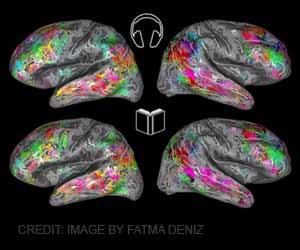High physical fitness among middle aged women decreases their chances of developing dementia by up to 90 per cent.

TOP INSIGHT
Highly fit women developed dementia an average of 11 years later than those women who were moderately fit.
For the study, published in the journal Neurology, 191 women with an average age of 50 took a bicycle exercise test until they were exhausted to measure their peak cardiovascular capacity.
The women were tested for dementia six times.
The results showed five per cent of the highly fit women developed dementia, compared to 25 per cent of moderately fit women and 32 per cent of the women with low fitness.
The highly fit women were 88 per cent less likely to develop dementia than the moderately fit women.
"This indicates that negative cardiovascular processes may be happening in midlife that could increase the risk of dementia much later in life," Horder said.
Source-IANS
 MEDINDIA
MEDINDIA




 Email
Email










